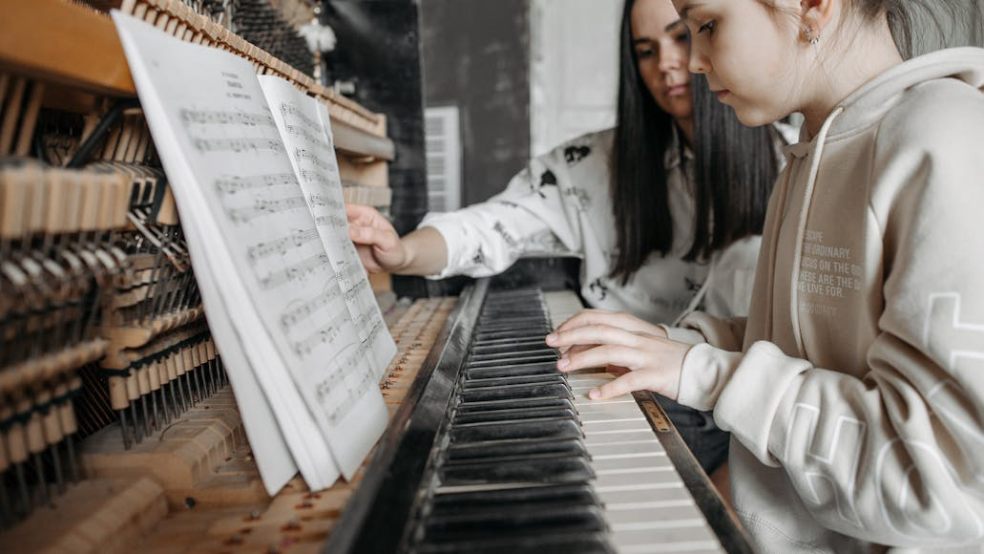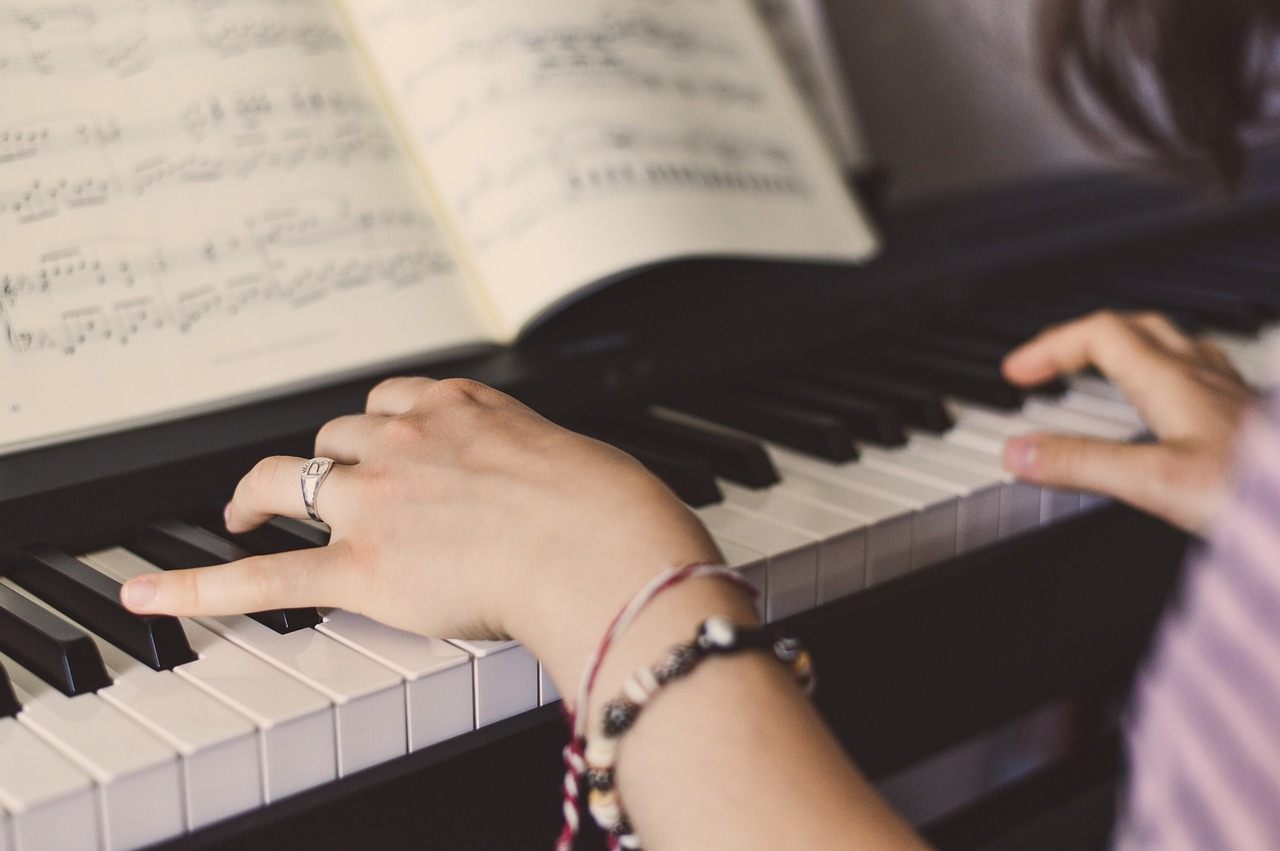
Piano Lessons in London: A Beginner’s Guide to Getting Started
In today’s hyperconnected and fast-moving world, losing touch with activities that offer genuine, lasting fulfillment is easy. Playing the piano offers more than just musical skills - it builds focus, creativity, and a lifelong sense of accomplishment. Whether you're an adult reigniting an old dream or a parent supporting your child’s interests, this timeless instrument is one of the most rewarding ways to grow creatively. Unlike many hobbies, piano doesn’t require you to be particularly athletic, artistic, or tech-savvy - it just requires patience and a willingness to try.
In a bustling city like London, there’s no shortage of options for learning music. For beginners who feel overwhelmed by the choices, platforms like MuseCool make it easier to get started with structured, supportive piano lessons tailored to your pace and goals. Should you opt for online piano lessons or attend in-person sessions? Do you need a full-sized piano to begin? What kind of music should you start with, and how quickly can you expect progress?
This article is here to guide you through these questions with clarity. Whether you’re seeking structure or just trying to reignite a creative spark, we’ll cover what truly matters in those first crucial steps. With the right expectations and guidance, starting piano lessons in London can become one of the most rewarding decisions ever.
Why Piano Is the Perfect First Instrument?
There’s a reason so many people begin their musical journey with the piano. It’s one of the few instruments that allows you to play both melody and harmony right from the beginning. Unlike wind or string instruments, which can take weeks just to produce a clean note, the piano gives instant sound feedback - press a key, and the tone is clear, rich, and satisfying. That immediate reward makes it particularly motivating for beginners.
The visual layout of the piano also makes music theory easier to understand. Keys are arranged in a way that visually reflects scales, intervals, and patterns, helping learners grasp abstract musical concepts more intuitively. Even if you’ve never read sheet music, the piano allows you to follow patterns and develop musical logic naturally.
In addition to accessibility, the piano is incredibly versatile. Whether you're into classical pieces, modern pop, jazz improvisation, or composing your music, the piano provides a solid foundation. It’s often considered the “universal” instrument - one that benefits students of all ages, styles, and skill levels.
Key benefits of starting with the piano:
• It teaches both melody and harmony
• You don’t need to tune it or develop embouchure
• It’s suitable for children, adults, and older beginners alike
• You can start making real music in your first few lessons
• It supports a better understanding of other instruments later on
As one long-time instructor in London explains:
“The piano allows beginners to feel musically capable early on, which is incredibly motivating. You don’t need to know theory to play something beautiful.”
What Do You Need to Begin?
One of the most common misconceptions about learning piano is that you need a grand acoustic instrument, a soundproof room, or expensive equipment to get started. In reality, most beginners start with much simpler setups - and still make fantastic progress. What matters more than fancy gear is consistency, motivation, and a comfortable space where you can focus.
A digital keyboard is often the best option for new students. It’s affordable, compact, and offers the features you need to build a strong technique. If you can, choose a model with full-sized, weighted keys and touch sensitivity. This helps you develop finger strength and dynamic control, preparing you for any kind of piano you may play in the future.
Beginner setup checklist:
• 61-88 key digital keyboard (weighted or semi-weighted is best)
• Adjustable stand and bench to maintain proper posture
• Quiet, well-lit space where you won’t be disturbed
• Headphones (especially helpful if you live with others)
• Notebook or digital app to track your progress and goals
You don’t need to make a big investment upfront. Many students rent instruments during their first few months, borrow from friends or relatives, or even use keyboards available at schools or community centers. The most important thing is that you feel comfortable and eager to return to your instrument regularly.
Tip: Spend the first five minutes of each practice session just focusing on hand relaxation and body alignment. This prevents tension and improves control.

How Much Time Should You Set Aside?
One of the biggest myths about learning an instrument is that it demands hours of practice every day. While professional musicians may dedicate several hours to daily training, beginners don’t need to - and probably shouldn’t - start there. Overcommitting early on often leads to frustration and burnout.
What’s far more effective is short, focused, and consistent practice. Even as little as 15 minutes a day, done mindfully, can produce significant results. The goal isn’t perfection - it’s progress. Regular repetition helps build muscle memory, improve hand coordination, and reinforce your sense of rhythm. Most importantly, it creates a habit.
Aim for:
• 15-25 minutes per day, 4-5 times per week
• Brief warm-ups and finger exercises to avoid strain
• Repetition of small sections instead of full songs
• Pausing to reflect on what felt easier or harder in each session
With this kind of approach, most beginners can reasonably expect to:
• Play simple melodies within 3-4 weeks
• Begin reading sheet music after 1-2 months
• Use both hands confidently within 2-3 months
Tip: Consider setting a timer for 20 minutes to help establish a habit of regular, focused practice. Small routines build long-term success.
What matters most is not how long you play, but how consistently. Practicing five times a week for 20 minutes will always beat cramming everything into one long Sunday session. Plus, daily short sessions keep the material fresh in your mind, speeding up progress.
With the right routine and structure, like those provided in MuseCool’s beginner piano programs, consistency becomes much easier to build. Having a supportive teacher and a personalised plan helps students stay motivated and progress at a steady pace.
Mistakes Beginners Often Make (and How to Avoid Them)
Starting a new hobby is exciting, and with excitement often comes the urge to move quickly. But when it comes to learning piano, a slow and steady approach usually leads to far better long-term results. Many beginners unknowingly adopt habits that slow their progress or lead to frustration. Recognizing these early can help you stay on track and enjoy the journey more fully.
Common mistakes to watch out for:
• Skipping posture and hand position basics
Many students jump straight into playing songs without understanding how to sit, where to place their hands, or how to relax their shoulders. These small physical details make a big difference in control and long-term comfort.
Tip: Spend the first five minutes of each practice session just focusing on hand relaxation and body alignment. This prevents tension and improves control.
• Trying to learn complex songs too soon
It’s tempting to try your favorite movie theme or a popular hit right away, but jumping into advanced pieces can cause overwhelm.
Tip: Break difficult pieces into smaller, manageable sections. Master each part slowly before combining them.
• Practicing only what’s familiar or easy
Repeating the same things can feel safe, but growth happens outside your comfort zone. A mix of challenge and repetition is key to progress.
• Ignoring rhythm and timing exercises
Many beginners focus only on notes and forget rhythm. But rhythm is what makes music feel alive.
Tip: Instead of avoiding difficult rhythms, try clapping them out first. This develops your internal pulse and helps reduce frustration when learning new pieces.
• Comparing yourself to others
Social media and video platforms make it easy to see people at their best - playing fast, flashy music. But comparison kills confidence. Focus on your progress and enjoyment.
As one experienced piano teacher in London explains:
“Every student hits roadblocks, but those who succeed are the ones who show up regularly and learn how to stay curious, not perfect.”
Mistakes are part of learning. The key is turning them into opportunities - moments to reflect, adapt, and improve.
Should You Learn Online or In Person?
One of the first decisions you'll make when starting piano lessons is whether to learn online, in person, or through a mix of both. Fortunately, in a city like London, all of these options are available - and each comes with unique benefits depending on your goals, schedule, and learning style.
Thanks to technology, online piano lessons have become increasingly popular and effective. High-quality video calls, multi-camera setups, screen sharing, and virtual tools allow teachers to guide students clearly and consistently. For busy adults, parents managing household routines, or anyone looking to eliminate commute time, online lessons are a flexible and convenient choice.
On the other hand, in-person lessons still hold powerful advantages, especially for those who benefit from hands-on feedback. Teachers can physically adjust their hand position, posture, and technique in real time. This level of immediate correction can be especially helpful for children or anyone new to musical instruments.
In-person lessons are ideal for:
• Young children who benefit from direct physical guidance
• Students who prefer face-to-face communication and structure
• Learners developing advanced techniques or performance skills
Online lessons are ideal for:
• Busy professionals or students with unpredictable schedules
• Parents looking for a flexible at-home solution for their kids
• Anyone seeking affordability, convenience, and learning from home
• Those seeking piano lessons for adults in London with minimal disruption to daily life
Some learners even combine both formats, choosing a hybrid approach where in-person sessions are supplemented with online check-ins. This model works especially well for piano lessons for adults with busy schedules, or piano lessons for kids who benefit from both structure and flexibility. This flexible model ensures progress continues even during travel, illness, or busy periods.
Ultimately, the best format is the one you’ll stick with. Choose based on what fits your rhythm, not what sounds ideal on paper. If you're looking for flexibility without sacrificing personal guidance, MuseCool offers both online and in-person piano lessons in London, tailored to your schedule, skill level, and musical taste.
What to Expect in Your First Three Months?
The first few months of piano lessons are some of the most exciting - and crucial - for building momentum, confidence, and lasting enjoyment. This is where you move from being a total beginner to someone who can read music, play melodies, and feel genuinely connected to the instrument.
In the early weeks, your focus will be on physical basics: how to sit at the piano, position your hands, and get familiar with the keyboard layout. At the same time, you'll be introduced to rhythm and simple notation so you can start playing short, satisfying pieces from the very beginning.
Here’s a general breakdown of what many students experience in their first three months of lessons:
Month 1: Getting Comfortable with the Basics
• Learn finger numbers and correct posture
• Play simple melodies using one hand
• Understand basic rhythm patterns (quarter notes, rests)
• Explore the layout of black and white keys and identify patterns
Tip: Spend time naming notes out loud and tracing patterns on the keyboard - it will help with memory and orientation.
Month 2: Playing with Both Hands and Reading Music
• Begin using both hands to play simple songs
• Read basic sheet music (treble and bass clef)
• Start to understand time signatures and note durations
• Practice with a metronome to develop steady timing
• Build finger independence with beginner exercises
Tip: Record short videos of yourself playing to track progress and notice small improvements week by week.
Month 3: Confidence and Musical Expression
• Play expressive beginner pieces, learning how dynamics and phrasing convey emotion
• Learn your first chords and apply them to familiar songs
• Use the damper pedal in simple contexts
• Try improvising short melodies or playing by ear
By the end of three months, most beginners are amazed at how far they’ve come. You may still feel like a novice, but you’ll have built a musical foundation strong enough to carry you forward, whether your goal is to play casually, perform, or even compose.
Why MuseCool Might Be Right for You?
At MuseCool, we understand that no two students learn the same way - and that the first steps into music require patience, trust, and clarity. That’s why we specialise in piano lessons for complete beginners, providing a welcoming environment where progress happens at your pace, not someone else’s.
Our teachers are carefully selected not just for their musical talent, but for their ability to motivate, adapt, and explain - whether you’re a new student, a returning adult, or a parent looking for structured piano classes for kids. Every lesson is personalised to reflect your goals, learning style, and schedule. You can choose to learn at home, join online sessions, or attend in-person lessons at our London studio. With MuseCool, you don’t need prior experience - just a little curiosity and the right guidance to turn it into confidence and skill.
Student and Parent Feedback
One of the most reassuring things for any beginner is hearing from others who’ve been in your shoes - people who started with no experience, faced the same doubts, and found joy in the learning process. Real stories from students and parents show just how transformative piano lessons can be, regardless of age or background.
“I thought I’d be too old to learn something new, but piano has become my escape from work stress. The first few lessons made me feel more confident than I expected. I never imagined I’d look forward to practicing, but now it’s something I genuinely enjoy after a long day.” - James, 42, Fulham
“My daughter Ava was nervous at first, but within a month, she was proudly playing ‘Twinkle Twinkle’ for our family. Her teacher was patient, fun, and knew how to keep her engaged. I love that it’s helped her focus more at school, too.” - Priya, parent of a 7-year-old student
“As a working professional, I didn’t think I could stick to lessons. But flexible scheduling and encouragement kept me going. Now it’s the best part of my week. I’m already playing pieces I never thought possible - and I’ve only just begun.” - Karim, 36, Hackney
These stories aren’t outliers - they reflect a broader truth: with the right support system, environment, and mindset, anyone can learn to play piano. Whether your goal is to master classical sonatas, accompany yourself while singing, or just unwind in the evenings, the journey is open to you.
Why Your Environment Matters?
Learning piano is more than just developing technical skills - it’s about building confidence, discovering your voice, and forming a long-term relationship with music. But none of that happens in a vacuum. Your environment plays a crucial role in determining whether you'll stay motivated, enjoy the process, and reach your goals.
A supportive learning space - both physical and emotional - can be the difference between quitting in frustration and sticking with it through the challenging phases. If your lessons feel rushed, impersonal, or overly rigid, it’s easy to lose interest. On the other hand, when the environment is encouraging, adaptable, and built around your pace, you’re far more likely to keep going and enjoy every step of the journey.
That doesn’t just apply to your teacher or school - it includes your home setup, your routine, and even the way you talk to yourself about progress. A small, quiet space where you can focus without interruptions can help create a daily habit. A teacher who listens and adapts to your goals will keep you engaged. And a mindset that values growth over perfection will make every practice session more rewarding.
Tip: Reflect on what type of learning environment makes you feel most relaxed and open, and try to recreate that in your practice space. Lighting, sound, and even posture can affect how you play and how much you enjoy it.
Many people give up on music not because they lack discipline or talent, but because they have never found the right learning context. Don’t underestimate the power of the environment - it shapes your experience as much as the instrument itself.
Frequently Asked Questions (FAQ)
1. How long does it take to play a song I love?
The answer depends on the complexity of the song and your commitment to regular practice. For simple pop tunes made up of a few chords or a recognizable melody, you could be playing them in as little as 3-4 weeks. If your goal is to perform a more intricate classical or jazz piece, you might need a few months of consistent study.
2. Can I learn piano if I’ve never played any instrument before?
Absolutely - and in many ways, starting fresh is an advantage. You’re not carrying over any bad habits, and you’ll be guided through the process with a clean slate. The piano is one of the most beginner-friendly instruments because it provides visual clarity (the keys are laid out straightforwardly), produces immediate sound, and allows you to play recognizable tunes early on.
3. What’s the best way to stay motivated long term?
Motivation doesn’t come from pressure - it comes from progress, variety, and enjoyment. The best way to stay inspired is to mix structured learning with personal interests. Yes, scales and finger exercises matter, but so do songs you love, creative play, and musical exploration.
Ready to begin your piano journey?
Discover how MuseСool can support you every step of the way - with lessons tailored to your pace, goals, and schedule. Visit our site to meet your teacher and get started.













